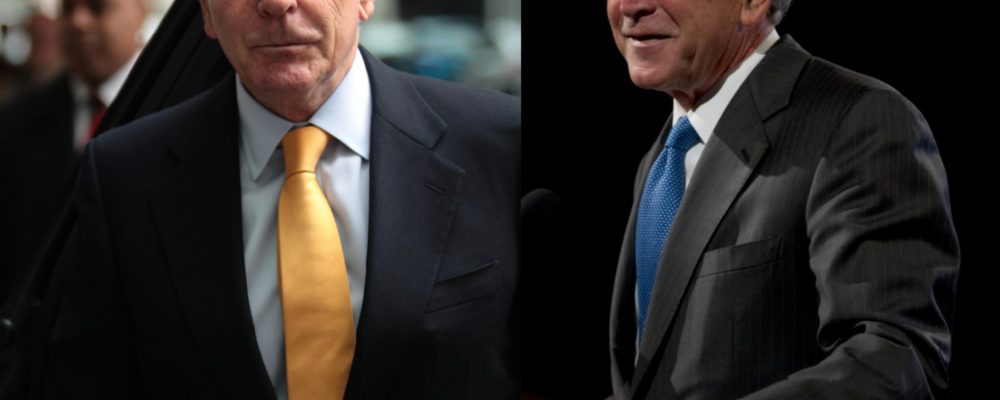Those who enjoy a spot of political safari would have relished the rare sight this week of two big, political beasts prowling back from the wilderness – and on the same day, too.
In the first instance, former UK premier Sir John Major stepped up to the podium at think tank Chatham House to take on what he perceives to be a host of myths that are flowing out of Theresa May’s government about the likelihood of the UK making a smooth transition to life outside Europe. In the second, 43rd US President George W Bush spent his first TV interview in years criticising new commander-in-chief Donald Trump’s handling of the media, asserting that a free and independent press was an “indispensable” tool for checking the more “addictive and corrosive” aspects of power.
However, their interventions arrived amid a climate of what Major might dub “not inconsiderable” political sensitivity. Tensions persist over the outcome and potential impacts of Britain’s EU referendum, the debate alternately stretched and squashed by the rise of populist politics. Meanwhile, question marks dangle over the temperament and decision-making fitness of the man who now calls the shots in the White House.
Mindful of those treacherous conditions – and the upsetting of apple carts that typically accompanies the return of veteran voices – the media has made much of the protocol that should govern former leaders’ re-emergence from the shadows. Or rather, the lack of said protocol, because the rules are essentially made up on the spot. So, is it up to ex-bosses to gauge the temperature of the discussions they wade into – or should organisations indicate where the lines are drawn?
In the view of Kate Cooper – head of research, policy and standards at The Institute of Leadership & Management – organisations would benefit hugely from being far more relaxed and open about these types of interventions. “After people leave,” she notes, “many organisations tend to almost ‘disappear’ them – especially when those people have left in something of a hurry. But it’s really important that we honour those that have gone before, and give recognition to their part in shaping the organisation’s history and defining where it is today. Even if we don’t agree with them.
“If there were a greater effort to honour and appreciate those that have gone before – that is, if they weren’t an unmitigated disaster like, for example, the Co-op’s Paul Flowers – then we could use their criticisms and comments in a much more constructive way. On those terms, it wouldn’t actually sound like they’re shouting from the wilderness, but like they’re part of the rich history of, say, the Conservative Party or the Republicans.”
Cooper adds: “there’s so much in the press right now about people staying in the workforce for longer, and CIPD has even published some research this week about how people want to stay involved and engaged with work after they retire – not necessarily for financial reasons, but to keep mentally fit and make a useful contribution. Therefore, the more we honour and recognise the contribution of our predecessors, the better it is for the society as a whole going forward.”
For further thoughts on today’s age-diverse workplace, check out this guide from The Institute
Image of Sir John Major courtesy of Twocoms / Shutterstock
Image of George W Bush courtesy of Christopher Halloran / Shutterstock

